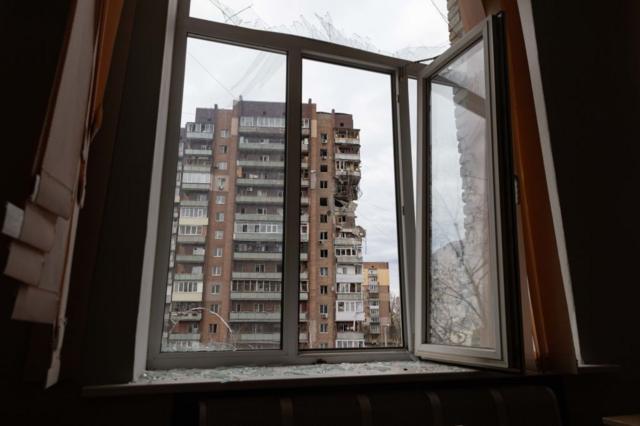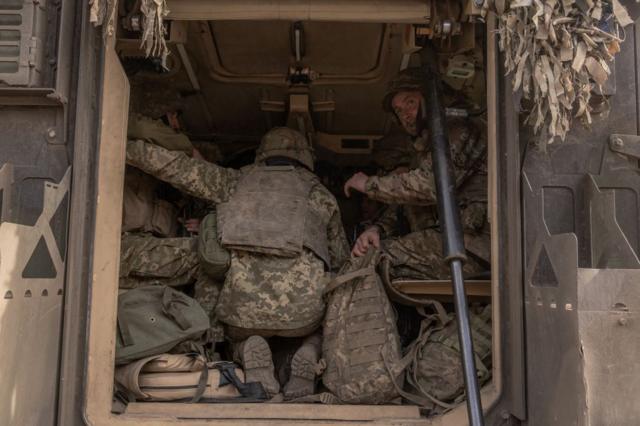The majority of Ukrainians continue to mostly approve of the activities of President Volodymyr Zelenskyi, however, this support is no longer as high as it was at the beginning of the full-scale Russian invasion. Ukrainians also continue to believe in victory in the war, and many believe that the pace of mobilization in Ukraine is slow.
This is evidenced by the results of a sociological study by the "Rating" group, which was commissioned by the Center for Analysis and Sociological Research of the International Republican Institute.
Ukrainians were also asked how they see the future of Ukraine, how far in advance they plan their lives and when they celebrate Christmas.
How do they treat Zelenskyi's policy?

PHOTO BY GETTY
According to the survey, the majority of Ukrainians continue to support the president's work in office - more than 60%. Of them, a little less than a quarter (22%) approve of it completely and twice as many (41%) are inclined to approve it.
However, this support, which reached 90% at the beginning of the great war with Russia, is gradually falling. In April 2022, there were 94% of such respondents, and in February 2023 - 91%.
As of February 2024, there were a third (33%) of those who fully or partially disapprove of Zelenskyi's policies, compared to only 5% at the beginning of the invasion.
At the same time, the attitude of Ukrainians towards the rest of the authorities is even worse.
For example, as of February, only 19% approve of the activities of the Verkhovna Rada, 35% of the government under the leadership of Denys Shmygal, and 47% of local authorities.
The level of support for the Armed Forces of Ukraine remains consistently high - 93%.
Do Ukrainians still believe in victory?

PHOTO AUTHOR, GETTY Photo caption, Kharkiv after another Russian attack
Despite the skeptical attitude towards the authorities, the majority of Ukrainians - 88% - still believe in victory in the war with Russia.
However, now the number of such people is somewhat less than at the beginning of the invasion - then they were 97%.
At the same time, the largest percentage of people (45%) believe that Ukraine will keep all its territories that it had in 1991.
16% believe that Ukraine will return the territories under its control by February 24, 2022. The same number of people think that Ukraine, on the contrary, will lose some new territories.
7% of people are convinced that Ukraine will return Donbas, but not Crimea. And just as much - that Ukraine will return Crimea, but without the so-called DPR and LPR.
Only 1% of respondents believe that Russia will be able to completely occupy Ukraine.
"Mobilization is insufficient"

PHOTO BY GETTY
The authors of the study also asked the respondents to express their attitude towards mobilization.
The largest part of the respondents - more than a third (36%) - called the level of mobilization insufficient.
A little less than a third (30%) consider the current level of mobilization to be optimal.
Just under a quarter (19%) said it was too high, and another 15% could not answer the question.
Ukrainians were also asked why, in their opinion, people do not want to mobilize to the Armed Forces.
The most popular answer to this question was "fear of death, disability, captivity, uncertainty."
In second place is the option "unfair mobilization", and in third place is "lack of equipment, ammunition and weapons".
When they celebrate Christmas

PHOTO BY GETTY
Ukrainians were also asked what date they celebrated Christmas.
More than half (53%) of people answered that they celebrated Christmas according to the new calendar - December 25.
11% said that they continued to celebrate January 7. The rest answered that they either celebrated on both dates (17%) or did not celebrate at all (19%).
In September 2023, less than half of those who celebrated Christmas on January 25 were 42%.
Do Ukrainians plan ahead?

PHOTO BY GETTY
As for long-term plans, the survey found that the largest share of people plan their lives less than a month in advance. Such 24%.
23% said they plan their lives more than a year in advance.
15% cannot make any plans at all, another 12% plan their lives up to a year. The rest of the people can plan their lives for a period of one to six months.
The survey also included a question about whether the lives of families had worsened from an economic point of view. The majority of people (68%) answered it in the affirmative.
26% of respondents said that their economic standard of living has not changed in any way. Another 5% said that their financial situation had improved.
As for forecasts for the next year, almost half of people (46%) believe that their economic situation will not change in any way. 18% believe that it may worsen somewhat, and another 15% believe that it may improve somewhat.
How and who was asked
The survey was conducted at the end of February throughout Ukraine, except for the Russian-occupied territories of Crimea and Donbas.
People were interviewed through telephone interviews based on a random sample of mobile numbers.
In total, approximately two thousand Ukrainians aged 18 and older were asked. Those Ukrainians who are not currently in Ukraine were not included in the survey.
The error of representativeness does not exceed 2.2%.

